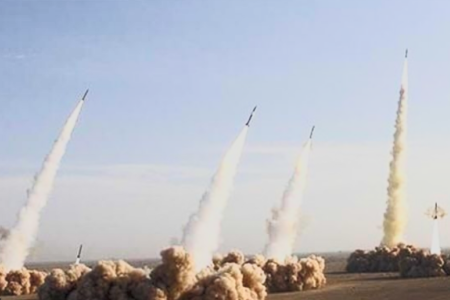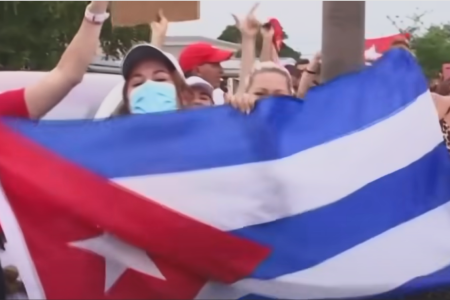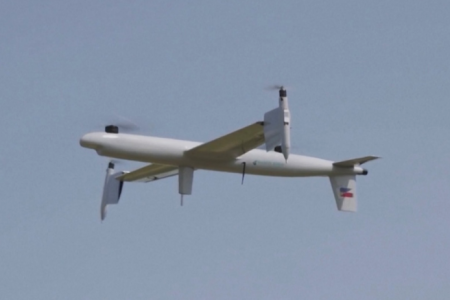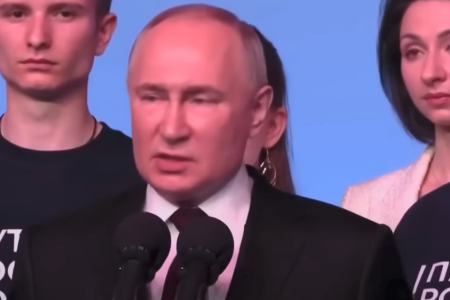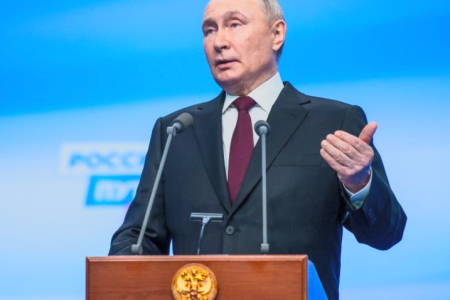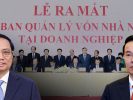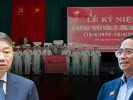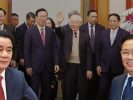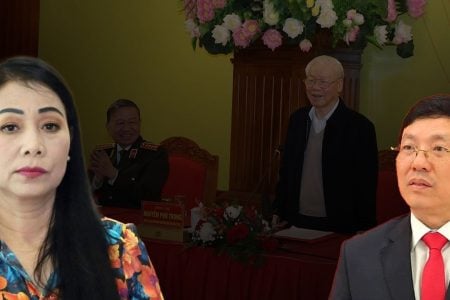When China was in trouble, President Xi Jinping repeatedly said that the Communist Party led in “East, West, South, North and the Center.”
In his important article published in the Communist Party magazine named Qiahi on July 15, 2020, Chinese President Xi Jinping reiterated the “Party leader in all aspects” for the Chinese nation and society.

But the article was considered “boring and monotony” by Western scholars, and only had the goal of asserting the power of Xi’s personal himself.
However, observers say it is worth mentioning that the article appeared at a time when China was struggling inside: major flooding, the end of the Covid-19 pandemic, and the outside: colliding with the US, Huawei issues and Hongkong problem.
As James Palmer wrote in Foreign Policy (July 17), Xi’s article is nothing new, just a reminder of his 18 old excerpts.
The introduction even uses an excerpt from Mr. Xi’s words in 2013.
This is a sign that the sole purpose of the post is to reassert Xi Jinping’s power, Carl Minzer, an expert on China, said in an article on Foreign Policy.
This control consists of two parts: the Party holds everything, and Xi Jinping is the nucleus, holding full power in the Party.
The English version of the article clearly states: “Party leadership is the most important feature of Chinese socialism.”
“The leadership of the Chinese Communist Party is the choice of the entire Chinese people, including democratic parties, social organizations, ethnic groups, families, and all people.”
The familiar phrase “East, West, South, North, and Center, everywhere led by the Party is repeated five times in the article.
James Palmer wrote on Foreign Policy, calling it “Xi’s Little Red Article”, reminiscent of Mao’s Little Red Book, to show that Xi’s boring mindset however very dangerous.
Richard McGregor, a former British newspaper correspondent, Financial Times in China, now a scholar at the Lowy Institute in Sydney, Australia, thinks that Xi Jinping is trying to emphasize, in case someone forgets, about his central role of the Chinese Communist Party.

McGregor also wrote in The Sunday Times on July 19 that on the occasion of Britain’s elimination of Huawei, the Chinese media, and even some Chinese diplomats openly threatened Britain.
However, McGregor, author of the 2010 book about the Chinese Communist Party titled “The Party: The Secret World of China’s Communist Rulers,” believes that China’s threat is not effective for Britain, because in fact, only 4% of exports from the UK are to China in 2019.
The UK economy therefore, does not depend as much on China as the Australian economy, because Australia ships 40% of its exports to China.
In addition, the UK is still holding the deciding card about the fate of the Chinese company in the contract to build an atomic power plant in Bradwell-on-Sea, Essex.
Last week, another author, Ambrose Evans-Richard, wrote in The Telegraph that Britain had nothing to fear from China, because according to him, the Chinese economy “had reached a peak, and would only decrease to go stagnant.” The most important, according to Evans-Richard, is that Xi Jinping’s regime has no other economic allies.
Chinese diplomats spoke out
Recently, Chinese diplomats have strongly voiced their opposition to the “encirclement” of the West and condemned American and British activities in Asia.
The Chinese ambassador to Britain, Liu Xiaoming, recently appeared on BBC correspondent Andrew Marr’s interview to deny allegations of Chinese detention of Muslims in Xinjiang in re-education camps.
Liu Xiaoming told Andrew Marr that Uighurs are treated like any other ethnic group in China.
In an unusual move, last week, the Chinese Embassy’s Facebook page in Hanoi, published by Global Times Editor-in-Chief, Hu Xijin, warned Vietnam not to take sides with the US.
“International relations are like a child’s play, like to be bad at face to face. The US currently dedicates a lot of pampering to Vietnam, the only purpose is that of separating the Sino-Vietnamese relationship, encouraging Vietnam to stand against China in the maritime issue, making Vietnam also a pawn service for US strategy of pinching China.”
He explained the reasons why Sino-Vietnamese relations are important, including sentences about common socialism ideology and “the strength between China and Vietnam is immutable.”
The most important point, according to Hu Xijin, is that Vietnam needs to avoid being “exploited” by the US.
A few days later, the content of Hu Xijin’s article in Vietnamese published on the occasion of the US-Vietnam anniversary of 25 years of diplomatic relations was removed from the Facebook page of the Chinese Embassy in Vietnam.

China threatens that Vietnam may be “overthrown” if sides with the US to fight China

In the Vietnamese BBC News article titled “Can Vietnam be pro-American and anti-Chinese?” Journalist Tran Dinh Thu analyzed the above possibility as follows:
More than a year ago, anyone who raised this issue would be opposed. I myself was also opposed to talking about that possibility on my personal Facebook page, although I spoke quite reserved.
But the fanpage of the Chinese Embassy in Hanoi posted a letter from the editor-in-chief of the Global Times to “Say a few words to the Vietnamese people” which reminded Vietnam not to “develop relations with the US to contain China,” in other words, do not follow the US to fight against China, making many people feel that the issue can be discussed more seriously.
The question is whether Vietnam, with a political institution that is so different from the US, can become close to the US like its ally to control China.
Human history has a reference in World War II, when British French and French stood on the side of the Soviet Union against the fascists. At first hesitated, but later for the common good, those countries accepted.
In principle, if both parties are harmed by a third party, they can work together temporarily to fight the third party.
Theoretically, the case of the US and Vietnam can be considered the same.
Vietnam has been pressured by China in the South China Sea, the US is affected by freedom of navigation, so the possibility in which the two sides can join forces to fight China is not too difficult to understand.
There is a need to worry about changing political institutions?

This is the problem that many people do not believe that the Vietnamese leadership has turned its axis towards the US to restrain China.
And also Global Times Editor-in-chief Hu Xijin reminded the leaders of Vietnam when he wrote “China and Vietnam are both socialist countries, most socialist countries in the world have collapsed, being a neighboring country of China, Vietnam can maintain a stable political situation, the biggest potential strategic support comes from China’s political stability. Vietnam is very difficult to endure for a long time alone.”
That is of course a brainstorm that makes Vietnamese leaders hesitate. Will they be able to overcome this worry?
If so, is there any calculation?
Indeed, if they were worried, they would not have become so close to the US today.
But today Vietnam is quite close to the US and has some strong reactions to China on the South China Sea (Vietnamese call it East Sea) issue. In addition, Vietnam is also cooperating with the US to combat trade fraud from China.
So they didn’t need Hu Xijin’s reminder that they had already planned.
The problem is how far they will go.
Anti-Beijing, pro-American, but not multi-party?
This may also be a model of Vietnam for the time to come as long as it is appropriate.
Siding with the US to restrain China but keeps the old political regime.
However, the color of socialism may fade out accordingly. Partially expanded democracy is possible but there is no multi-party.
But without multi-party democracy in the short term, will it satisfy the people’s aspirations?
In conclusion, I would like to share that a previous survey from Singapore showed that 80% of the Vietnamese surveyed said that they liked Vietnam to have good relations with the US. This rate is the highest in ASEAN.
At the same time, Vietnam is also a country with a very high proportion of people who do not trust China.
So if the Vietnamese leadership pivots with the US to work against China, then I think it will meet the people’s aspirations and that will have an impact on the development in general,” journalist Tran Dinh Thu reached a conclusion.
Thoibao.de (Translated)





